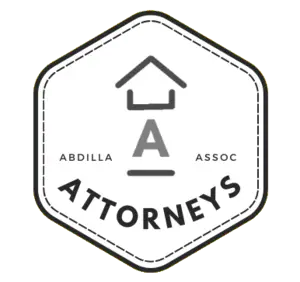There is only one piece of paper I see every single day. If you wound up on this page, I think you’ve probably seen it too. It’s intimidating, it’s lengthy, and it’s written in complicated legalese. But, if you’re buying, selling, short selling, exchanging, or even thinking about real estate in Illinois, you will see the Multiboard 7.0 contract on every deal you do. This document is the one document you must know back and forward, up and down. The most important thing I do as a real estate attorney is explain this document to my clients.
Over 30% of the people who come to this website googled “Multiboard 7.0” to have their purchase agreement explained to them. So, with that in mind, we will dive right in and explain all 39 clauses of the 2019 Illinois Multiboard contract. Download the embedded document and follow along.
7.0_MASTER__fillable_-3Table of Contents
Sections 1 and 2 – What and Who?
The simplest clauses of the Multiboard 7.0 are the first two. Clause 1 identifies the buyer and seller. Then, clause 2 identifies the property. Since so much of Chicagoland has association parking and storage, those parcels are also optional to include.
Now, when you look at clause 2, you will see three boxes to check. Single Family Attached means that the property is a townhouse – it is any property that shares a common wall with someone else’s property. Contrarily, Single Family Detached means that you own the whole structure, or in common terms, a house. Finally, Multi-Unit refers to a set of flats or an apartment building. Your realtor should be able to explain which kind of property you are buying.
Section 3 – Fixtures (Multiboard 7.0 Update)
This clause is brand new for the 2019 Multiboard 7.0 contract. Anything attached or installed into the property is a fixture. Fixtures are those things that cannot be removed without damaging a wall. Additionally, accessory structures, including certain gardening installations, are treated as fixtures in a sale.
So, the Multiboard 7.0 Contract substantially updates the fixtures clause from the Multiboard 6.1. Now, it includes a checklist of fixtures. When the seller checks something in the fixtures section, the seller is promising that such item will come with the house in the sale. This means that the buyer can inspect it, test it, and have it after the sale. There is a little checkbox for a home warranty at the end, which we will discuss in clause 22.

Sections 4, 5 and 6 – Price, Payment and Possession
Section 4 – Price, Credits, Earnest Money, Balance
In the Multiboard 7.0, Section 4 talks about what we’re paying. To our clients, this is often the most important section of the whole contract! The first paragraph states the purchase price, which is the offer the buyer put in on this house. At closing, the Buyer pays that purchase price, adjusted for prorations, earnest money, and closing credits.
Closing credits are the credits the seller gives the buyer for little things around the house. Common credits we see are credits to service the air conditioner, credits for the carpeting, and credits for scuffed electrical outlets. Good advocacy for a buyer strikes a balance between purchase prices and closing credits to get the best loan.
Earnest Money is a deposit the buyer makes, usually with the seller’s brokerage, to show their intention to purchase. Why would a seller take the home off the market just because someone wants to buy it? Accordingly, the seller traditionally wants $500 to $5,000 as a gesture of good faith from a committed buyer. We’ll talk more about the Earnest Money Deposit (EMD) in section 22.
The Balance due at Closing is the amount of money the buyer needs to bring to closing. As this paragraph states, the buyer’s purchase price, modified by proration, less earnest money, and credits, is what they owe at closing. Usually, the buyer’s lender pays the overwhelming majority of this amount as part of the mortgage.
Great Advice for Selling a House, You Pay No Additional Costs!
$0 Attorneys Fees on Sales
Sections 5 and 6, Transfer of the Property
Section 5 details the time and place for closing, while section 6 discusses the time that the seller loses and the buyer gains possession. For nearly all residential real estate transactions, closing happens within 45 days of the offer. Then, possession changes hands at that closing. If something is different, we’ll see it in paragraph 35.
Section 7: Financing Contingencies (New for the Multiboard 7.0)
Part A of the Multiboard 7.0 was a great change to more realistic deadlines in today’s financing world. As you can see in Part A, the buyer is relieved from the promise to buy the property if she cannot obtain financing within 45 days of the accepted offer. Therefore, the buyer’s Realtor will typically draft this financing contingency on behalf of the buyer. After, it will state all of the essential terms of the mortgage, including:
- Whether the loan is fixed or adjustable
- Whether the loan is conventional, or through government assistance
- The amount of the loan, its interest, its duration, and its points
New for the Multiboard 7.0 is also the contingency that the Buyer must make an honest application within 10 days of the accepted offer. If the Buyer drags her feet on applying for finance, the Seller can void the contract!
Now, Part B and C are very similar. Part B is the Buyer’s declaration that she will pay the entire purchase price in cash at closing. When you hear about a “Cash Buyer” that means they’ve executed Part B. Contrarily, Part C is a “Cash Buyer” who might take financing options but does not immediately require them. We almost never see Part C selected on the Multiboard 7.0.
Section 8 – Statutory Disclosures within the Multiboard 7.0
In Illinois, all home buyers need to receive 5 documents to protect their financial and personal safety. Therefore, the Multiboard 7.0, in Section 8 simply says whether or not they have received those disclosures. They are the Illinois Residential Real Property Disclosure, the two Lead pamphlets, and the two Radon disclosures.
Moreover, if you are new to investing in Illinois, please be aware that many properties here require Radon remediation. Radon is no joke for the health of yourself or your children! Please read these!

Section 9 – Prorations, HoAs, and Illinois’s Complicated Tax Problems
In Illinois, the seller pays to the buyer (usually as a set-off) prorations for taxes, rentals, association fees, and special service fees. We’re not going to get into Association fees here, because that got its own article. But, the situation with taxes is very unique in Illinois. So, we always reflect it on the Multiboard 7.0.
Illinois’s state budget has a very troubled history, and as a result, the property taxes are a year behind. If you’re from Chicago, this makes perfect sense to you, but most other markets will not pay 2019’s winter taxes on June 15th. Some years ago, in Illinois, we had a tax holiday that threw off our tax payments by a whole year. Now, when the seller transfers the property, she credits the buyer for taxes to be paid.
A Brief Example of Tax Proration
For example, imagine Billy Buyer will close on his deal with Sally Seller 300 days into the year, on approximately November 1, 2020. At the closing, Sally will owe Billy for the 300 days of 2020’s taxes that she would start paying in 2021. After all, Sally used the property during that whole time! Billy has no certainty that taxes won’t go up. So, to cover his risk, Billy asks for Sally to pay 105% of last year’s tax bill (2019’s taxes) for the 2020 taxes due in 2021. We only fill in the percentage amount on the Multiboard 7.0. In practice, we usually just use an Excel formula to figure this out.
Still, for most sellers, this tax proration is the biggest expense on their entire ALTA statement. It is very important to understand why this money must change hands! That’s why we always put it on the Multiboard 7.0 contract.
Condominium Disclosures
The Multiboard 7.0 inquires whether the Seller knows of any lien by a Homeowner’s Association on the property. These liens are not just money owed. Rather, they are an admission that the Seller can’t quite do what she wants with the land. The Seller discloses this upfront because this question concerns the rights in the land. The seller must always disclose the fees of the HoA and promise that the account is in good standing.
Section 10 – Attorney Review (and You)
Illinois, and the Multiboard 7.0 contract, is completely unique in providing attorney review for every transaction. Every seller, and every buyer, will have an attorney within 5 days of signing the offer sheet. That attorney will write a letter to the opposite party about anything that needs to be changed or clarified in the Multiboard 7.0. This is where we start representing the majority of our clients.

Sections 11 and 12, As-Is or Inspection
Paragraph 11 of the Multiboard 7.0 is a standard “as-is” clause. If you have initialed Paragraph 11, your understanding is that “what you see is what you get.” When we see Paragraph 11 initialed, we expect to see Paragraph 36 initialed as well. If not, Paragraph 12 always applies.
Paragraph 12 discusses the buyer’s process of inspection and the seller’s process of curing the problems with the home. The Multiboard 7.0 allows the buyer to conduct, at her own expense, a multitude of inspections and investigations on the home she wants to buy. The Seller must make the home available for inspection.
Then, after the buyer inspected the property, the buyer’s attorney will send the seller’s attorney a letter about what needs to be fixed. Paragraph A, on line 166, discusses the form of that letter in the Multiboard 7.0. Importantly, the inspection letter may only discuss issues of health and safety. Cosmetic credits, maintenance, and minor repairs are parts of those credits from Section 4.
Crucially, the Buyer’s attorney must send that letter within 5 business days of the accepted offer, or the buyer waives the inspection. If the buyer does not say what is wrong, within 5 short days of the signed offer, the buyer must take the property as it stands. So, always chase your attorney to make sure this letter went out on time. Personally, I put alarms on my phone for the day the letter must go out, to make sure it always does.
Great Advice for Selling a House, You Pay No Additional Costs!
$0 Attorneys Fees on Sales
Sections 13, 14 (and 18) – Insurance
All Multiboard 7.0 contracts acknowledge that every buyer wants full insurance coverage on her new home. Therefore, if the buyer cannot secure homeowner’s insurance, flood insurance or title insurance, the buyer won’t have to purchase the home. The buyer has 10 days to find the Homeowner’s insurance and flood insurance under the Multiboard 7.0.
Section 18 is the seller’s promise to pay for and provide insurance that the seller has land to sell. Crucially, the title insurance provides the buyer protection that the land she wanted to buy is the land she is getting. Thus, the Title Company insures the Buyer that this property will be properly hers. The Multiboard 7.0 no longer groups Section 18 with the other insurance, but it provides a similar buyer protection.
Section 15 – Specifics of the HoA
In the Multiboard 7.0 Contract, Section 15 lists the 22.1 disclosure warranties the seller gives in Illinois. If the seller has an Association, the seller must give some reassurances to the buyer. In total, the seller must provide and promise:
- First, the HoA does not burden the title of the land.
- Secondly, that the seller paid the assessments.
- Then, there are no special assessments or changes under Paragraph 9 between acceptance and closing.
- Finally, the condominium by-laws are known and disclosed, and that the home can freely pass to the buyer.
But, in common practice, these are all things that I do as the attorney for my sellers. I take care of the HoA to avoid all the hassle over fees and just find out what will make them happy. We work with many HoAs in the area and have great relationships with them!

Sections 16-21 – Title Insurance in the Multiboard 7.0
These six sections of the Multiboard 7.0 Contract provide that the land and the home are in the condition the buyer will expect. When you transact property in Illinois, the party taking the biggest risk is the closer. Accordingly, the closer, which is nearly always a title company, wants to investigate the legal status of the land and the home. You may be shocked to know that the title company will buy the house back from you if there is a legal problem with the land! Therefore, title insurance is very expensive — and that is why these sections are so complex!
Sections 16 and 21, Documents for the Seller’s Attorney
Section 16 provides that the seller will transfer a good deed to the buyer upon sale. In practice, her attorney will always draft this document for the buyer at closing. As you may expect, this is a very particular document that must include the legal description of the land and all tax information. Therefore, under the Multiboard 7.0, we must know every single spot the buyer is purchasing, so the seller can legally give it to the buyer!
Similarly, Section 21 discusses the fixtures that are sold. Under the Multiboard 7.0, as we talked about with Section 4, the Seller’s attorney always gives the Buyer a Bill of Sale. Accordingly, the Bill of Sale transfers all the items from Section 3’s list so that they become a part of the real estate closing. Otherwise, the parties must sell them individually, and they would not be part of the transaction. Again, this section seeks to insulate the closer from legal liability when the transaction completed.
Sections 17-20 – Guarantees
Sections 17-20 of the Multiboard 7.0 all do the same thing. Altogether, they guarantee that the property sold is free from legal disputes, includes the correct land boundaries, and is still standing. Section 17 ensures that all the taxes are paid so that the property is not seized for tax violations. Similarly, Section 19 is the Buyer’s right to a survey to show that the land is correct. Likewise, Section 20 allows the Buyer to exit the contract if the property is destroyed.
Title Insurance makes these three Multiboard 7.0 clauses effective. In short, Title Insurance provides that the Buyer is not risking her new home if there is a tax problem, survey problem, or structural problem. It’s truly a wonderful product that holds together the trust of all other people who work on the transaction. The Seller’s attorney nearly always does the title work, so don’t be afraid to ask questions of yours! We do this work all the time, and will take care of it for our seller clients.

Section 22 – Seller Guarantees Under the Multiboard 7.0
Foremost, when we look at this clause, we see some really scary things that the Seller is promising aren’t happening! The Multiboard 7.0 Contract makes the seller promise the building is free from zoning, code violations, boundary disputes, condemnation, easements, hazardous waste, real estate tax, or new, unapproved buildings. Expectedly, these are huge issues! Therefore, the seller must make a separate promise on each line that the property is acceptable in these ways.
Section 23 – Real Estate Tax Escrows
Look at that first checkbox in Section 22. See how it states that there might be “improvements” that are not included in the tax assessment? If the Seller informs the Buyer that there is a new building on the property, this section applies. Then, 3% of the purchase price goes into escrow. Section 26 shows how to hold that 3% to negotiate proper tax status on this property once the city approves the building. Frankly, this section rarely applies.
Sections 24 and 25 – Day, Time, Sign
Succinctly, Section 24 states that weekends and holidays don’t count against the 5 or 10 day limits throughout the Multiboard 7.0. This clause says that business hours end at 6:00pm. That might not be true, but for this contract, it is!
Further, Section 25 allows the parties to sign the Multiboard 7.0 purchase agreement digitally. Illinois did not adopt the Uniform Electronic Signatures Act in the late 2000’s. Therefore, we must put electronic signatures in our contracts. It is not in our law.
Section 26 – Escrow and Earnest Money
If you came to this article looking to understand an Earnest Money dispute, you need a lawyer right now. These disputes are terrible and lengthy. We do everything to avoid them for our clients. But, they do happen. So, let’s look into them.
Whenever the deal falls through, that money we discussed in Section 4 comes up for grabs. If the parties agreed that the deal should not complete, the seller will usually just give it back. If the buyer backed out without a good reason, the seller normally tries to keep it. So, when that happens, the seller must follow these procedures to try to claim the money. If the parties do not reach agreement, the escrow is arbitrated in a Court of Law. Try to avoid this!
Sections 27 and 28 – Multiboard 7.0 Notice and Performance
For the Multiboard 7.0, most written communications are effective notice. Personal letters, mail, fax, email, overnight delivery… all of those work! If you need to serve notice, it will almost always be your attorney who puts the letter in the mail. But, if you have to do it yourself, you can use pretty much anything but instant messengers and text messages.
Finally, for Section 28, time is of the essence in a Multiboard 7.0 contract. The parties want to transact this house and there is no time to waste! Sometimes, if the parties can’t close, the loser pays reasonable attorneys fees to the other party to complete the transaction. This contract has real teeth to force a meeting of the minds. Never forget that!
Optional Clauses in the Multiboard 7.0 — Part 2
This article is 3000 words long at this point. While I wanted to do a full article on the Multiboard 7.0, I think it is best to split it into two parts. We will deal with the optional clauses in an upcoming article!
If you have any questions about this contract, leave a comment, contact me or call me! I’m always happy to talk shop with our guests. Thanks for dropping in and I hope we helped educate you about this very complex document!
Great Advice for Selling a House, You Pay No Additional Costs!
